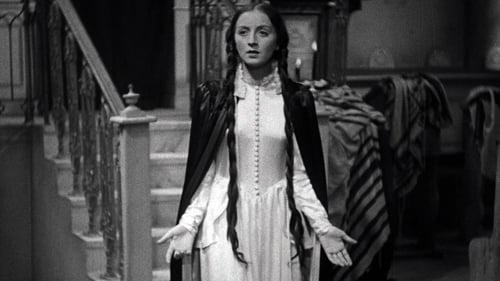
Writer
This mythic love story set in a timeless, lavishly colorful and mystical Jerusalem incorporates hard rock, striking set design, computer-generated imagery and modern-day tensions between the secular and the Orthodox worlds. Hanan, a handsome young traveler - who has pierced ears and wears grungy flannel shirts - falls in love with Lea, the beautiful daughter of a leader in the religious community. Unbeknownst to the couple, a deal was struck, years earlier, in which they were promised to each other by their fathers. When Hanan consults with a master of Kabbala, a set of mysteriously forbidden eleventh-century texts unleashes untold powers, merging the erotic with the divine and affirming love's infinite potential to transcend all obstacles. The lovers are played by Yehezkel Lazarov (Waltz with Bashir) and Ayelet Z'urer (Angels & Demons; Vantage Point). (from sfjff.org)

Theatre Play
The Dybbuk is a made for TV film adaptation of a classic Jewish folktale. The story is about a young Jewish man, Sender (Theodore Bikel) who loves a young Jewish woman, Leah (Carol Lawrence) but her father arranges her marriage with another man. The grief of this causes Sender to die, but his spirit passes into the body of his beloved on her wedding day. Rabbi Azrael (Ludwig Donath), who serves as our narrator through the beginning of the film, is charged with the task of exercising Sender’s Dybbuk (sometimes defined as a malicious spirit or demon who possesses the living) from Leah’s body.

Theatre Play
In a Polish shtetl, two young men who have grown up together betrothe their unborn children, ignoring the advice of a mysterious traveler not to pledge the lives of future generations. Soon after, one of them dies, and the wife of the other dies in childbirth. The children grow up in different towns, without ever knowing of the betrothal, but the power of the vow leads them to meet each other when they are marriageable. The young woman, Leah, is promised to another man, but Channon, the son of the father who died, is a practitioner of mysticism, and seeks to win his bride through sorcery.


